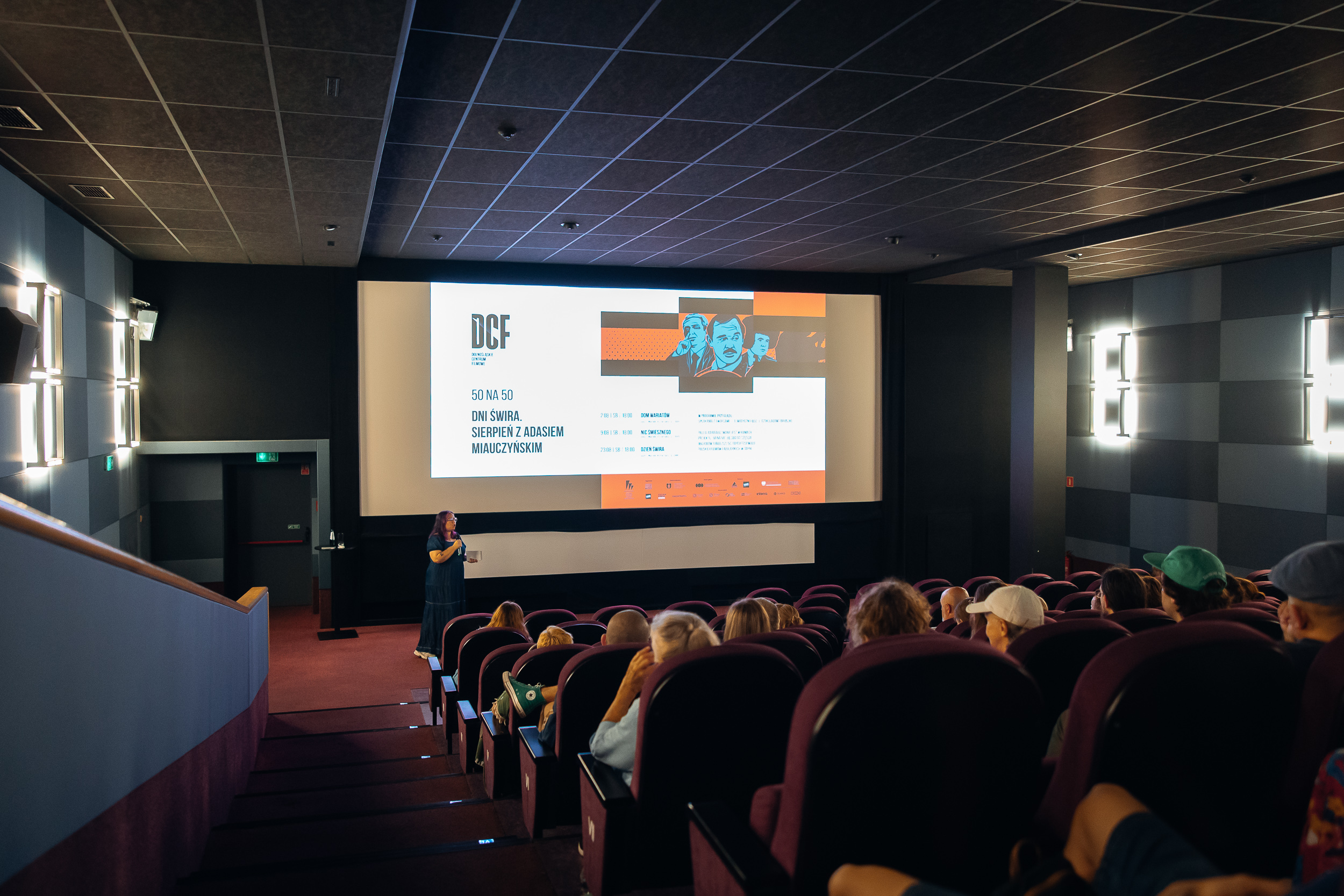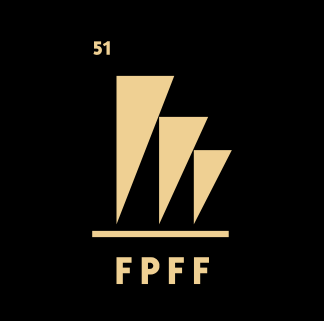The September editions of the “50 for 50” project, part of the year-long nationwide celebrations of the 50th edition of the Polish Film Festival in Gdynia

September is approaching the climax of the jubilee celebrations — the 50th Polish Film Festival in Gdynia. In the “50 for 50” project, we are not slowing down and will continue the celebrations in Koszalin, Kraków, Płock, and Hrubieszów. The Golden Lions will make their way to Kraków and Koszalin. In Płock, we will show that the Polish Film Festival breaks boundaries, and the screenings will be accompanied by live recitals.We will also travel east to learn the stories of people and places in Polish Cinema, and to attend a concert by the Hrubieszów Song and Dance Ensemble featuring folk and Jewish songs and dances.
In the first half of September, we realized that time is money, took a train journey from Gdynia to Pleszew for a film project, and explored generational cascades.
“In August, the audience at the Lower Silesian Film Centre had the opportunity to attend a retrospective of films by Marek Koterski entitled <<Days of the Wacko. August with Adaś Miauczyński>>.As part of the event, they watched three films: The House of Fools, Nothing Funny, and Day of the Wacko. Before the screening of The House of Fools, the audience at the Lower Silesian Film Centre had the opportunity to attend a lecture conducted by Katarzyna Czajka-Kominiarczuk (ZwierzPopkulturalny).Thanks to our guest, we experienced a true laughter therapy, and the audience had the chance to hear a highly insightful analysis of the iconic character created by Marek Koterski. The screening of Day of the Wacko was enriched with special touches: Magdalena Klich-Kozłowska (Director of the Lower Silesian Film Centre) introduced the audience, recalling Krystian Miderski’s article <<Day of the Wacko: We Are All a Little Wacky>>. After the screening, some attendees took part in a quiz on the world of Adaś Miauczyński and other films by Marek Koterski,” said Małgorzata Jakubowska from the Lower Silesian Film Centre.
In September, we also invite you to:
“Golden Lions in Koszalin” | Kryterium Cinema, Koszalin
19th September – Hi, Tereska, dir. Robert Gliński
19th September – Silent Night, dir. Piotr Domalewski
20th September – The Reverse, dir. Borys Lankosz
After the screenings, there will be a meeting with journalist and film critic Anna Serdiukow.
“Golden Lions at Dworek” | Dworek Białoprądnicki Cultural Centre, Kraków
20th September – All Our Fears, dir.Łukasz Ronduda, Łukasz Gutt
“Polish Film Festival in Gdynia – Breaking Barriers” | Mazovian Museum Cinema and Performance Room in Płock and the cinema room of the Czardasz Hotel in Płock
26th September – Mazovian Museum Cinema and Performance Room inPłock
Sonata, dir. Bartosz Blaschke. After the screening, a discussion with the filmmakers will take place, followed by a short piano recital by Grzegorz Płonka.
26th September – Mazovian Museum Cinema and Performance Room in Płock
Ikar. The Legend of Mietek Kosz, dir. Maciej Pieprzyca. After the screening, a discussion with the filmmakers and Tomasz Lach, a friend of Mietek Kosz, will take place. A mini recital of Mieczysław Kosz’s piano music will be performed by Zdzisław Babiński.
30th September – Cinema room of the Czardasz Hotel in Płock
Imagine, dir. Andrzej Jakimowski, followed by a meeting with the director.
“On the Eastern Route: Stories of People and Places in Polish Cinema” | Hrubieszów Cultural Centre, Plon Cinema
29th September – Cold War, dir. Paweł Pawlikowski. A concert performed by the Hrubieszów Song and Dance Ensemble featuring folk and Jewish songs and dances. A lecture on folklore and borderland music will also take place.
// Photo: Sebastian Górecki | Lower Silesian Film
The list of all screenings organized as part of the “50 for 50” project, along with a map of their locations, is available at the following link:https://festiwalgdynia.pl/50-na-50/.Details of each event can be found on the websites of the partner institutions.
50 for 50 is organised by the Pomeranian Film Foundation in Gdynia, the producer of the Polish Film Festival. The project has been co-financed by the Ministry of Culture and National Heritage and the Polish Film Institute. Main partner: National Film Archive – Audiovisual Institute. Partners: Documentary and Feature Film Studio, Telewizja Polska. Media patrons: Telewizja Polska, Polska Press Grupa, naszemiasto.pl, Polish Radio 1, Polish Radio 3, Magazyn Filmowy SFP, Filmweb, Interia, KINO, Telewizja Kino Polska.

